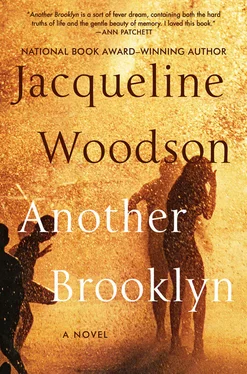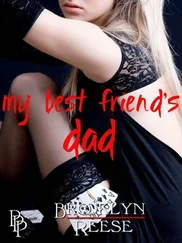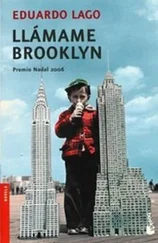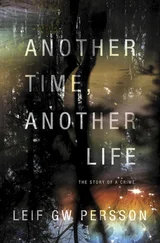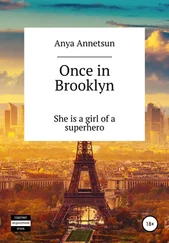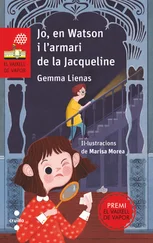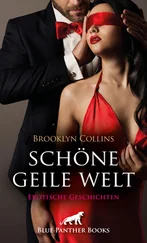The world was ending. We had been girls, wobbling around the apartment in Gigi’s mother’s white go-go boots and then and then and then.
Little pieces of Brooklyn began to fall away. Revealing us .
We envied each other’s hair, eyes, butts, noses. We traded clothes and shared sandwiches. Some days we laughed until soda sprayed from our noses and hiccups erupted in our chests.
When boys called our names, we said, Don’t even say my name. Don’t even put it in your mouth. When they said, You ugly anyway, we knew they were lying. When they hollered, Conceited! we said, No — convinced! We watched them dip-walk away, too young to know how to respond. The four of us together weren’t something they understood. They understood girls alone, folding their arms across their breasts, praying for invisibility.

At eight, nine, ten, eleven, twelve, we knew we were being watched.
So we warned each other about the shoe repair on Gates Avenue, how the old man who reminded us of Geppetto made you wait on the hard wooden seat in the little booth so he could steal glances at your legs and bare feet. Take somebody with you, we said . Don’t wear dresses when you go there. He’ll offer you a quarter to see your panties.
When we weren’t practicing walking in Gigi’s mother’s shoes, we were little girls in Mary Janes and lace-up sneakers. When the heels wore down or the soles flapped away from the tops, we were given a dollar and sent to Gates Avenue. Just a little, the man said. Please, the quarter, held up and gleaming between his thumb and pointer finger as we shook our heads No and embarrassed tears we didn’t yet understand sprang forward.
The pastor at my church comes up behind me sometimes when I’m singing in choir, Gigi said . I can feel his thing on my back. Don’t sing in your church choir. Or if you sing in it, go to another place while you sing. And she whispered how she was the queen of other places. Close my eyes and boom, I’m gone. I learned it from my mother, she told us . So many days you look in that woman’s eyes and she isn’t even there!
But when she is, Gigi said, she reminds me to go to Hollywood. Tells me I’ll be safe there.
We didn’t know to ask Safe from what? Safe from whom? We thought we knew.
We promised her she’d be more famous than anyone ever was. We told her no other brown girl had her strange eyes and crazily long hair. We believed ourselves when we said That’s what Hollywood wants , and I can’t wait to see you on television, and You’ll be more famous than Diahann Carroll .
Don’t trust the altar boys, Sylvia warned her, if you’re the only altar girl.
When she opened her mouth to sing Nina Simone’s “Just Like Tom Thumb’s Blues,” our throats throbbed, our teeth locked together. Sylvia lived deep inside of those notes, halfway hidden from all of us. They got some hungry women there and man, they’ll really make a mess out of you. .
You have to be a singer, we said. You have to!
After law, Sylvia said.
We tried to hold on. We played double Dutch and jacks. We chased the ice cream truck down the block, waving our change-filled fists. We frog-jumped over tree stumps, pulled each other into gushing fire hydrants, learned to dance the Loose Booty to Sly and the Family Stone, hustled to Van McCoy. We bought T-shirts with our names and zodiac signs in iron-on letters.
But still, as we slipped deeper into twelve our breasts and butts grew. Our legs got long. Something about the curve of our lips and the sway of our heads suggested more to strangers than we understood. And then we were heading toward thirteen, walking our neighborhood as if we owned it. Don’t even look at us, we said to the boys, our palms up in front of our faces. Look away look away look away!
We pretended to believe we could unlock arms and walk the streets alone. But we knew we were lying. There were men inside darkened hallways, around street corners, behind draped windows, waiting to grab us, feel us, unzip their pants to offer us a glimpse.
We had long lost our razor blades and none of us had ever truly stopped chewing on our nails. But still. .
I and I and I and I, we chanted. We and we and we and we .
We hand-songed Down down baby, down by the roller coaster. Sweet, sweet baby I’ma never let you go because we wanted to believe we were years and years away from sweet, sweet babies. We wanted to believe we would always be connected this way. Sylvia, Gigi, and Angela had moved far past my longest fingernail, all the way up my arm. Years had passed since I’d heard my mother’s voice. When she showed up again, I’d introduce my friends to her. I’d say, You were wrong, Mama. Look at us hugging. Look at us laughing. Look how we begin and end each other.
I’d say, Can you see this, Mama? Can you?
A man who used to be a boy on our block walked the streets in his army uniform, armless. He’d learned how to hold a syringe between his teeth and use his tongue to shoot the dope into the veins near his armpit.
My brother and I watched him at night from our window, watched his head dipping down like a bird tucking itself beneath its own wing.
Don’t ever do dope, my brother said to me.
You either.
I won’t, my brother said.
My brother and I woke to the smell of another house burning somewhere too far away to see, and he said he’d be a fireman maybe. Or an astronaut. Or a scientist, a cop, a drummer in a rock band, a farmer.
A farmer. Because once in SweetGrove, there had been a farm.
I watched my brother watch the world, his sharp, too-serious brow furrowing down in both angst and wonder. Everywhere we looked, we saw the people trying to dream themselves out. As though there was someplace other than this place. As though there was another Brooklyn.
August, my brother said again and again. Look there. And there. And there.
We still shared the one bedroom in our apartment, our twin beds only feet apart. We searched for each other first thing in the morning. Hey, we said. Hey yourself. Hay is for horses. Love you. Love you, too, we whispered each night before we closed our eyes. We reached across the space and entwined our fingers, our hands growing sweaty in the dark. We held on.
What’s in that jar, Daddy?
You know what’s in that jar.
You said it was ashes. But whose?
You know whose.
Clyde’s?
We buried Clyde.
Mine?
This is memory.
That was the summer the lights went out in New York City and people looted the stores on Broadway then rode through our neighborhood in convertibles, the tops down, holding boxes of shoes and television sets and pawned fur coats over their heads. My brother and I watched them from our window. The streets, my father said again and again, were too dangerous for anyone in their right mind. We lit candles, heated up cans of SpaghettiOs on the stove, the food in our fridge going bad as my father searched the neighborhood stores for bags of ice. If Biafra and Vietnam were more dangerous than my brother and I understood, the Blackout felt like the end of the world. We heard the horns and sirens moving through the night, saw the hawkers holding their stolen boxes into the air, shouting out prices. In the morning, our father let us go as far as the front gate, where we watched an old woman carrying an armful of looted dry-cleaned clothes up the block, the plastic glistening, her wide grin nearly toothless. We saw two boys sharing a pair of new roller skates, one still carrying the box beneath his arm. We saw teenagers running toward Broadway and asked again and again if we could go. It’s stealing, my father said. We don’t steal.
Читать дальше
